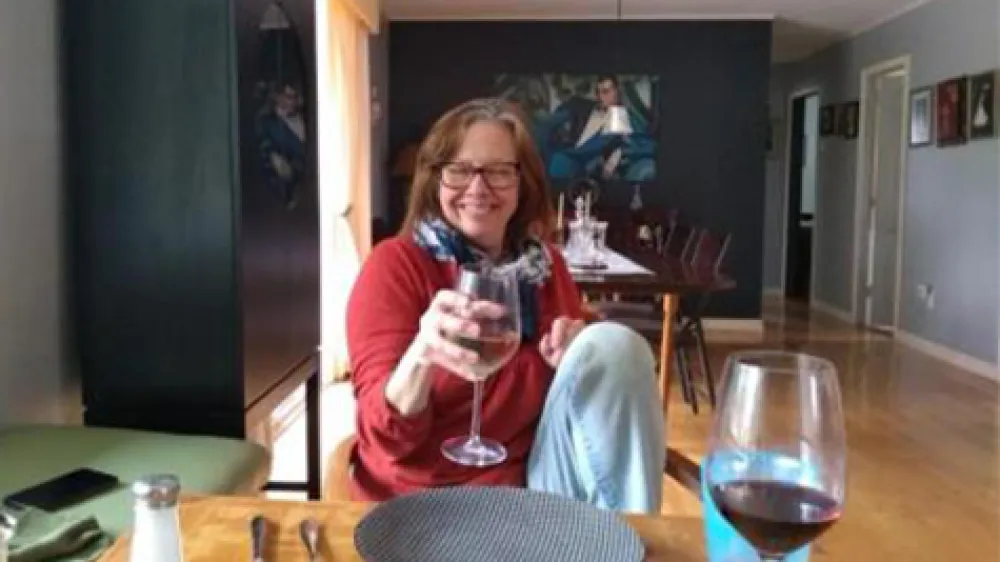Providing your location allows us to show you nearby locations and doctors.
Woman has “fantastic” outcome after surgery to treat tongue cancer

11/15/2020
Twenty years ago, Renee Rizzi, 63, of Rhinebeck, New York, was diagnosed with oral lichen planus, a benign autoimmune disorder that affects the skin and mucosa. For Renee, the condition caused white patches to develop on her tongue.
Renee’s oral surgeon recommended that she have frequent dental checkups because oral lichen planus is associated with a small increase in oral cancer risk. Renee coincidently starting working at a dental office shortly after she was diagnosed with oral lichen planus; she had regular teeth cleanings and monitoring more than she normally would have. Renee was diagnosed with tongue cancer in February 2020. She had surgery to treat the cancer at the height of the COVID-19 pandemic.
Receiving a diagnosis
During Renee’s last few dental checkups, her care team noticed that the oral lichen planus was getting bigger. Then, Renee noticed a pea-sized bump on her tongue.
“I was scared to death to get it checked,” said Renee. “I kept telling myself, ‘It’s just the oral lichen planus,’ but I kept waking up at night with anxiety attacks, and I knew something was probably wrong.”
Renee went to see an oral surgeon who performed a biopsy of the lump.
“I knew the oral surgeon because we refer to him from our dental practice,” said Renee. “His receptionist said he wanted me to come and get my biopsy results at the end of the day so he could spend more time with me; at that point, I knew it probably wasn’t good news.”
As the United States became increasingly concerned about COVID-19, Renee was diagnosed with early stage tongue cancer.
An expert consultation
The day after receiving her biopsy results, Renee went to see Dr. Al Haitham Al Shetawi. Dr. Al Shetawi is board certified in oral and maxillofacial surgery and fellowship trained in head and neck surgical oncology and microvascular reconstruction. Dr. Al Shetawi specializes in the surgical treatment of oral and head and neck cancers and performs facial reconstructive procedures.